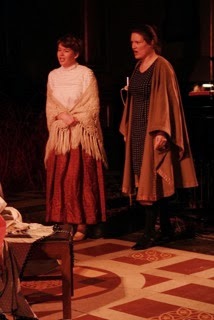When databases got going, there was a fashion for finding "perfect" recordings, as by hoarding data it might be possible to distil all the variants of performance into one ideal. The logic was that timings were often used as a measure of quality. But can performance really be measured in pseudo-science terms? It's much easier to say "Haitink takes 25 minutes, Gergiev takes six" than to analyse why.
It's human nature to control chaos by imposing order even if the order is nonsense. A spin off from Timings Tyranny was the idea of database surveys. Reviews were collected and entered into database. Press the right spec formula and out would pop the right recording! There was even an attempt to systemize the Ring. That presumes, however, that somewhere along the line someone had actually listened, and listened enough to know why performances work, assuming quality is even throughout. Listening takes decades of experience and knowledge. It's a progress without end. Every time you listen to something, you're hearing it new. The disc might not change, but you have changed since the last time you listened even if it was only a few hours ago. And I think, the better the work, the less likely you "need" listening guides.The fun is in the learning.
It's human nature to seek order from chaos and in busy modern times it makes sense to depend on preprocessed information. But what would be the fun in that? The idea of discographic purity falls apart when technology allows hundreds of ways of accessing what we listen to. Instead of timings and record label numbers, the alternative might be artist-based information. There is a study of Elizabeth Schwarzkopf's recording sessions, so we know when she sang what and where. The same song might be replicated a hundred times in the catalogue, but at least we can figure what else she was doing at that point in her life. If she'd come fresh from singing a role somewhere, it might have shaped the way she sang a song by a composer. But it would be impossible to pinpoint. By its very nature, listening is intangible, and subjective, and can never be measured.
It's human nature to control chaos by imposing order even if the order is nonsense. A spin off from Timings Tyranny was the idea of database surveys. Reviews were collected and entered into database. Press the right spec formula and out would pop the right recording! There was even an attempt to systemize the Ring. That presumes, however, that somewhere along the line someone had actually listened, and listened enough to know why performances work, assuming quality is even throughout. Listening takes decades of experience and knowledge. It's a progress without end. Every time you listen to something, you're hearing it new. The disc might not change, but you have changed since the last time you listened even if it was only a few hours ago. And I think, the better the work, the less likely you "need" listening guides.The fun is in the learning.
It's human nature to seek order from chaos and in busy modern times it makes sense to depend on preprocessed information. But what would be the fun in that? The idea of discographic purity falls apart when technology allows hundreds of ways of accessing what we listen to. Instead of timings and record label numbers, the alternative might be artist-based information. There is a study of Elizabeth Schwarzkopf's recording sessions, so we know when she sang what and where. The same song might be replicated a hundred times in the catalogue, but at least we can figure what else she was doing at that point in her life. If she'd come fresh from singing a role somewhere, it might have shaped the way she sang a song by a composer. But it would be impossible to pinpoint. By its very nature, listening is intangible, and subjective, and can never be measured.




















